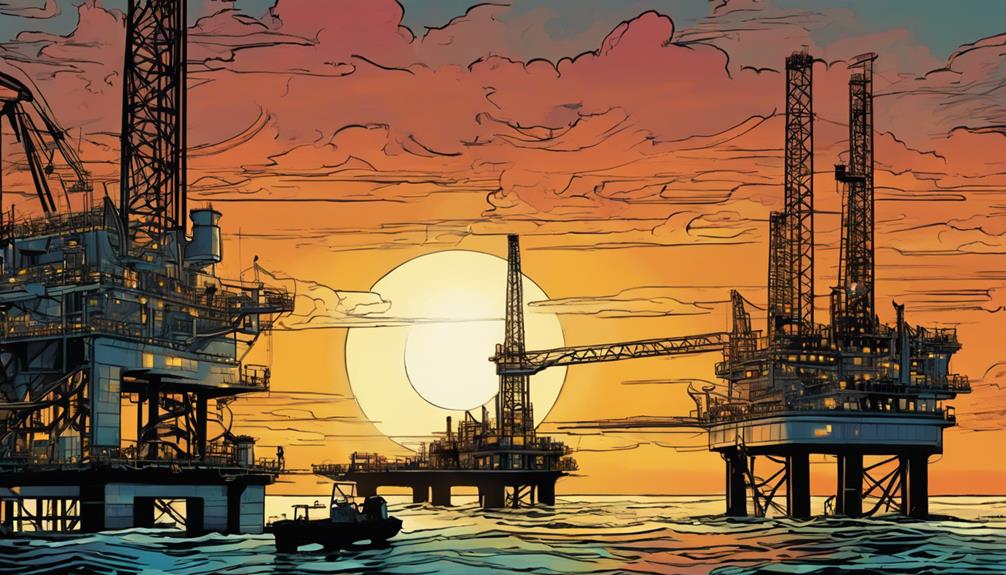If you are thinking about pursuing a career in the oil and gas industry, it is important to carefully consider both the advantages and challenges. This field presents a variety of job roles, ranging from geoscientists to petroleum engineers, often with competitive salaries and opportunities for on-the-job training. To succeed in this industry, you will need strong technical skills, problem-solving abilities, and a keen attention to detail. Be prepared for long hours in dynamic work settings, sometimes under hazardous conditions, which will require mental toughness. While there are plenty of chances for career advancement, it is crucial to remember the industry’s volatility and the growing emphasis on sustainability. If you are interested in exploring how your skills align with this field, there is so much more to learn about this exciting career path.
Key Takeaways
- Evaluate your interest in technical and operational roles, as the industry requires expertise in machinery and processes for success.
- Consider the demanding work environment, including long hours and the need for physical resilience in remote locations.
- Assess your adaptability to market volatility and regulatory changes, as these factors significantly impact job security and career growth.
- Explore potential salary benefits, with lucrative earning opportunities for specialized roles like geoscientists and engineers compared to entry-level positions.
Overview of the Oil and Gas Industry
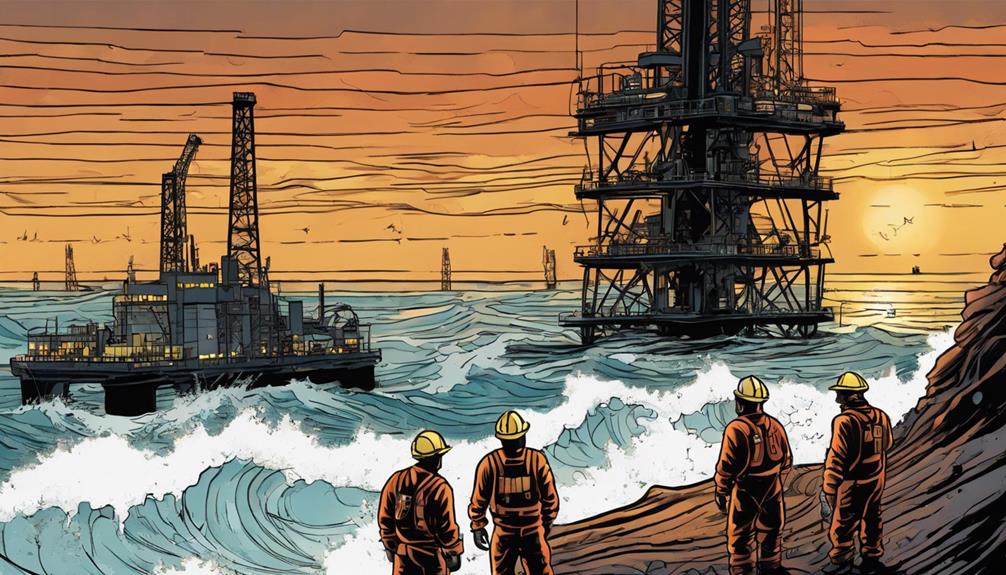
The oil and gas industry plays a critical role in the global economy, providing energy resources that power industries, transportation, and everyday life.
You'll find that this sector has deep historical roots, dating back to ancient civilizations that used petroleum for various purposes. The industry dramatically transformed in 1859 when Edwin Drake drilled the first oil well, leading to the modern energy landscape.
As technology evolved, so did the demand for oil and gas, especially after the invention of electricity. The rise of major companies, like Standard Oil and later the 'Seven Sisters,' shaped market dynamics.
Today, this industry continues to adapt, facing challenges like environmental regulations and the increasing shift toward renewable energy sources.
Career Pathways and Roles
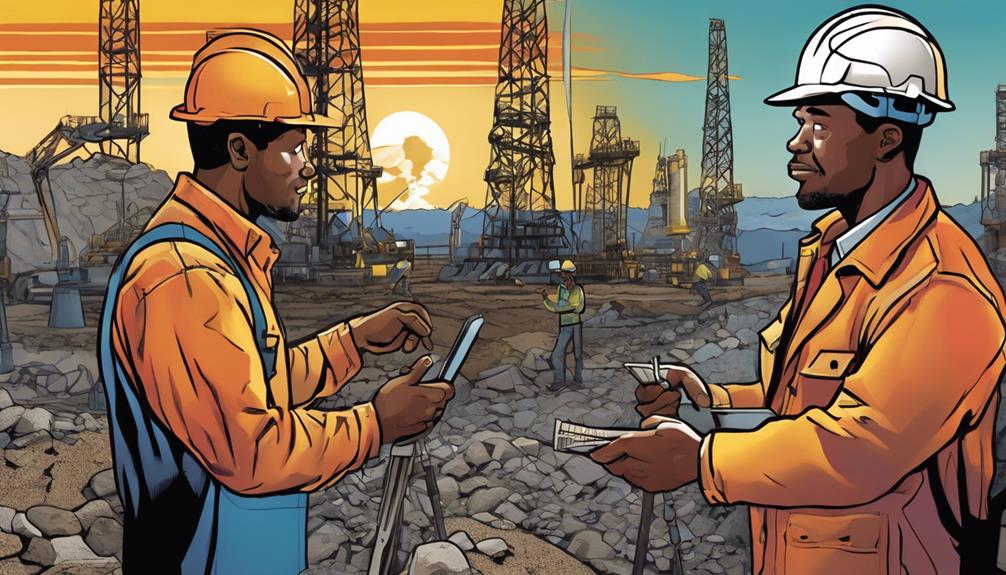
Exploring career pathways in the oil and gas industry reveals a diverse range of roles that cater to various skills and interests.
Whether you're drawn to technical, operational, or management positions, there's something for you. Here are a few roles to reflect on:
- Geoscientist: Investigate the Earth's physical aspects to locate resources.
- Petroleum Engineer: Innovate extraction methods to maximize resource recovery.
Many positions offer on-the-job training, making it easier to step in without a degree.
The industry values experience, so even if you start small, you can climb the ladder and advance your career.
Skills Required for Success
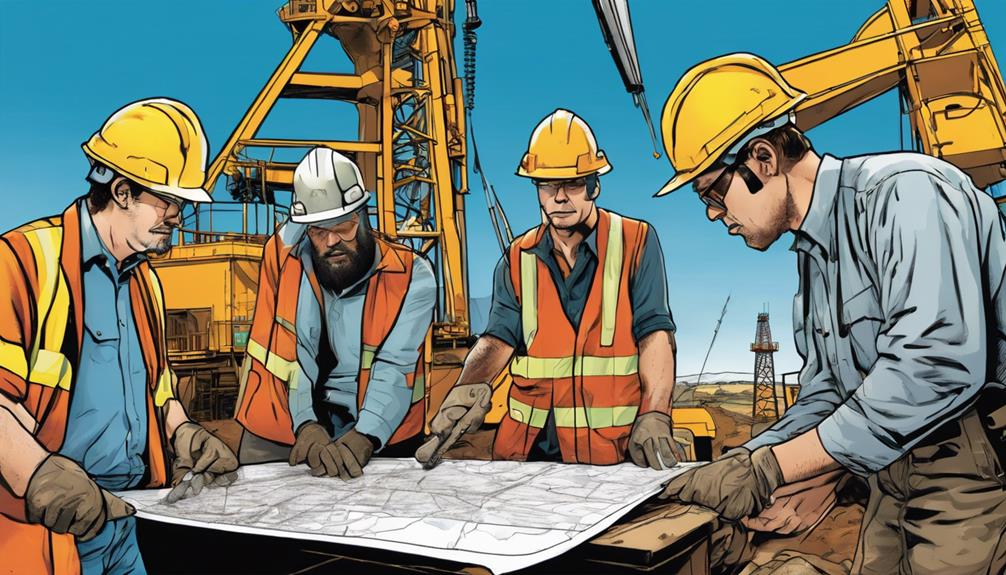
Success in the oil and gas industry hinges on a mix of technical expertise, problem-solving skills, and a strong commitment to safety.
You'll need to grasp complex machinery and processes, as well as have a solid foundation in engineering or geology, depending on your role.
Problem-solving skills are essential; you'll often face unexpected challenges that require quick, effective solutions.
Additionally, being detail-oriented can prevent accidents and guarantee compliance with regulations.
Strong communication and teamwork abilities are vital, as you'll collaborate with diverse teams.
Finally, adaptability is key; the industry evolves rapidly, and staying current with technological advancements and safety protocols will help you thrive in your career.
Embrace these skills, and you'll set yourself up for success.
Work Environment and Conditions
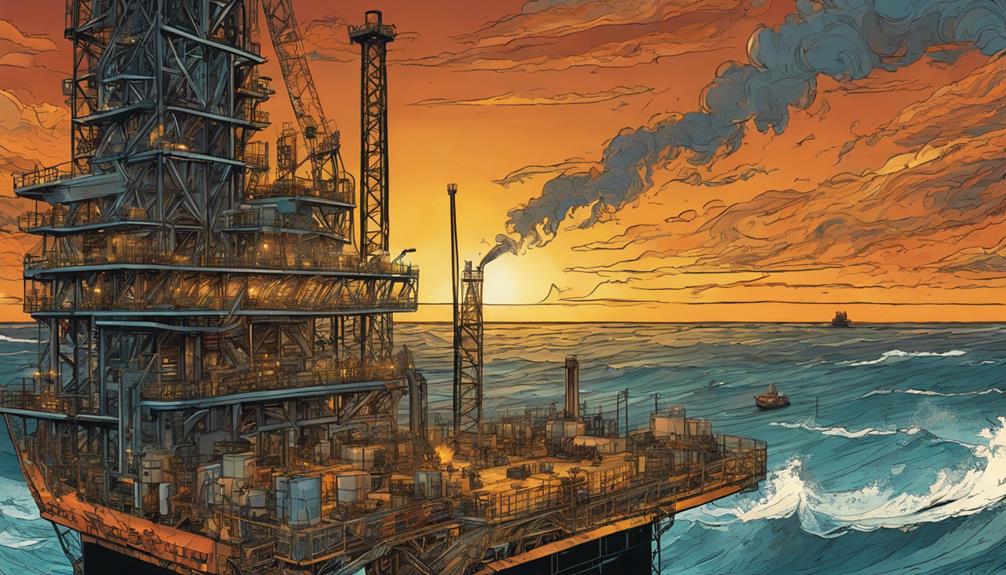
In the oil and gas industry, you'll often find yourself in dynamic and challenging work environments that demand both physical stamina and mental resilience.
You'll work in various settings, from remote drilling sites to bustling refineries, each presenting unique challenges.
Safety is paramount, and adhering to strict protocols is essential.
Here's what you can expect:
- Long Hours: You might work extended shifts, sometimes up to 80 hours a week, which can be demanding.
- Hazardous Conditions: The nature of the work can expose you to potential risks, making safety training vital.
Salary Expectations and Benefits
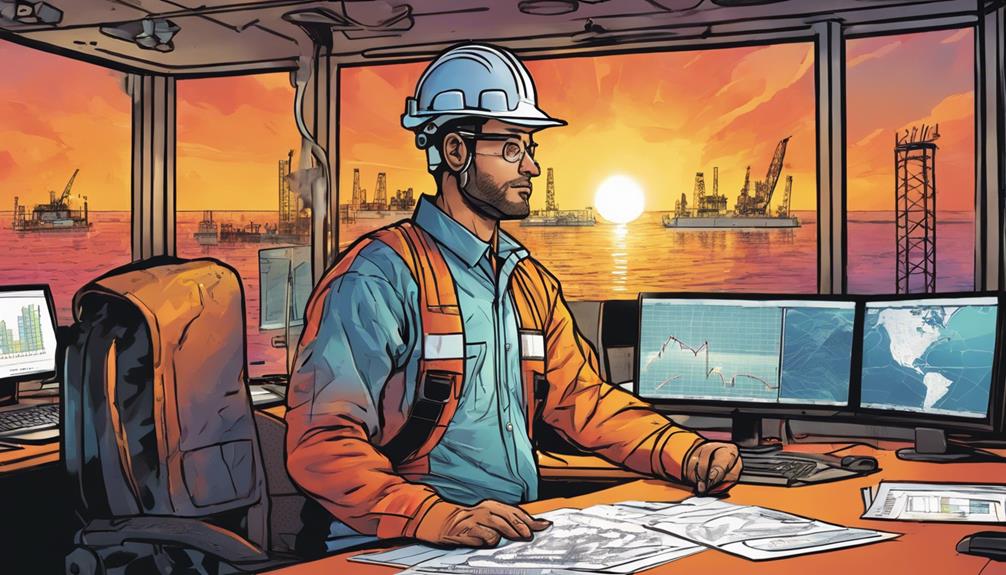
Salary expectations in the oil and gas industry can be quite lucrative, especially as you advance in your career and gain specialized skills. Positions like geoscientists and petroleum engineers can offer mean annual wages of $161,310 and $130,850, respectively. Even entry-level roles, such as roustabouts, provide competitive salaries around $56,030.
Beyond salaries, the industry typically offers generous benefits, including substantial healthcare packages and retirement plans. Companies often provide free training and certification programs, boosting your career growth without the need for a formal degree.
Additionally, rotational work schedules allow for extended time off, promoting a better work-life balance. Overall, the oil and gas sector presents promising financial rewards and valuable benefits for dedicated professionals.
Industry Challenges and Risks

The oil and gas industry faces a multitude of challenges and risks that can impact both operations and profitability. As you consider a career in this field, it's essential to be aware of these factors:
- Market Volatility: Fluctuating oil prices can greatly affect revenue and job security.
- Regulatory Changes: Stricter environmental regulations require constant adaptation and compliance.
Navigating these issues requires resilience and adaptability.
While the industry offers exciting opportunities, being prepared for its inherent challenges can help you thrive in your career.
Understanding these risks will allow you to make informed decisions about your future in oil and gas.
Future Trends and Opportunities
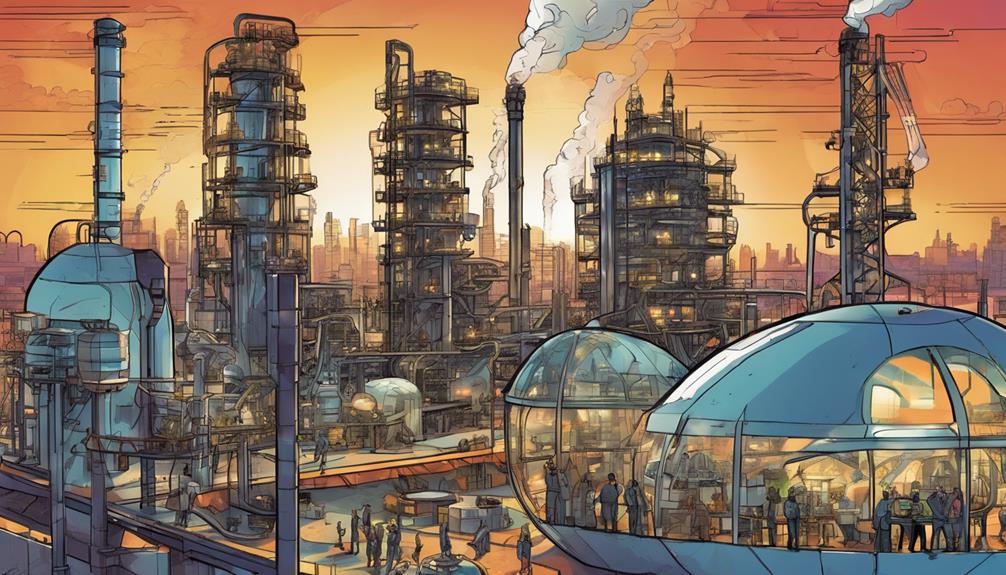
Emerging technologies and a shift towards sustainability are reshaping the future landscape of the oil and gas industry, creating new opportunities for skilled professionals.
You'll find roles in renewable energy integration, carbon capture, and advanced drilling technologies expanding rapidly. Companies are investing in digital solutions like AI and data analytics to enhance efficiency and safety, opening doors for tech-savvy individuals.
As regulations tighten around environmental practices, expertise in sustainable operations will be in high demand. Additionally, the growing focus on energy evolution means you can explore opportunities in hybrid energy solutions.
Frequently Asked Questions
What Educational Background Is Preferred for Oil and Gas Careers?
For oil and gas careers, you'll benefit from degrees in engineering, geosciences, or environmental science. However, many roles value experience and certifications, so don't worry if you lack a formal degree.
Are There Opportunities for Remote Work in the Oil and Gas Sector?
Yes, there're remote work opportunities in the oil and gas sector, especially in roles like project management, data analysis, and engineering. Companies increasingly embrace flexible arrangements, allowing you to contribute from various locations.
How Does Work-Life Balance Vary Among Different Roles?
You might feel like a superhero in the oil and gas industry, but work-life balance swings wildly. Some roles demand grueling hours, while others offer flexibility, letting you recharge and enjoy life outside work.
What Certifications Can Enhance My Career Prospects in This Industry?
To enhance your career prospects in the oil and gas industry, consider obtaining certifications like H2S Awareness, OSHA Safety, and Well Control. These credentials demonstrate your commitment to safety and expertise, making you a more competitive candidate.
Are Internships Available for Students Interested in Oil and Gas Careers?
Yes, internships are available for students interested in oil and gas careers. Companies often offer hands-on experiences, allowing you to gain valuable insights and skills while networking with industry professionals, enhancing your future employability.
What Skills and Qualifications are Needed for a Career in Non-Durables, as Compared to Oil and Gas?
A career in nondurables typically requires strong communication and problem-solving skills, as well as a solid understanding of supply chain management and consumer behavior. In comparison, a career in oil and gas may require technical expertise in engineering or geology, as well as knowledge of regulatory compliance and environmental impact assessments.
Conclusion
In the ever-shifting sands of the oil and gas industry, you can find a rewarding career that aligns with your skills and passions.
By weighing the pros and cons, you can navigate this dynamic field and uncover opportunities that match your aspirations.
Whether you're drawn to innovation or exploration, this industry offers a pathway to success.
So, if you're ready to plunge into, keep your eyes on the horizon—your future might just be fueled by the energy of this sector.
